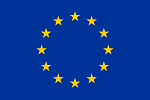 This project has received funding from the European Union’s Horizon 2020 research and innovation programme under grant agreement No. 952491
This project has received funding from the European Union’s Horizon 2020 research and innovation programme under grant agreement No. 952491 Title: Antimicrobial Resistance Surveillance (AmReSu)
Strengthening antimicrobial resistance surveillance in Croatia and Hungary
Antimicrobial resistance (AMR) is on the rise, resulting in 700 000 deaths worldwide every year. In Croatia and Hungary, AMR is responsible for the rapid increase in morbidity and mortality rates. The EU-funded AmReSu project will strengthen the innovation capacity in AMR surveillance in both countries, focussing on whole genome sequencing in correlation with next-generation sequencing techniques. It will also establish an ‘AMR surveillance vision’. The project relies on the cooperation of Semmelweis University in Budapest and Klinika za infektivne bolesti ‘Dr. Fran Mihaljevic’ in Zagreb with two internationally leading research institutions, the Laboratory of Medical Microbiology at the University of Antwerp and the Health Research Institute of the Balearic Islands. AmReSu will facilitate knowledge transfer, exchanges of best practices via training activities and the promotion of research excellence.
Objective
Our project “Enhanced networking on antimicrobial resistance surveillance with NGS” brings together Semmelweis University (SU) and Klinika Za Infektivne Bolesti „Dr. Fran Mihaljevic (BFM) with two internationally leading research institutions, Laboratory of Medical Microbiology (LMM), University of Antwerp (UAntwerp) and the Health Research Institute of the Balearic Islands (IdISBa) , on the topic of Antimicrobial resistance surveillance with whole genome sequencing (WGS) in correlation next-generation sequencing techniques.
Our aim in AmReSu is to strengthen, to the highest European level, Semmelweis University (SU)’s and Klinika Za Infektivne Bolesti „Dr. Fran Mihaljevic” (BFM)’s scientific excellence and innovation capacity in Antimicrobial resistance surveillance and to set-up an ‘Antimicrobial resistance surveillance vision’ in Hungary and Croatia.
Strenghtening antimicrobial resistance (AMR) surveillance is also in line with the Hungarian National Smart Specialisation Strategy and the Croatian National Programe for Antibiotic Resistance Control.
AMR bacterial infections are a global threat, they are responsible for increased morbidity and mortality rates in Hungary and Croatia, especially in cases of nosocomial infection.
Many previously manageable bacterial infections are becoming increasingly hard to treat. Rising rates of resistance amplify the morbidity and economic burden associated with infections.
An estimated 700,000 deaths attributable to AMR every year in the world, and a projected 10 million deaths per year by 2050 in the absence of additional control measures.
The core activities of our project are knowledge transfer, exchanges of best practices via a number of institutional networking
and training activities, including workshops, conferences, summer schools. to a new level, promoting research excellence in AMR and Microbiome with strong societal impact. Our proposed actions will strengthen joint research programmes in Europe.
Field of science
/natural sciences/biological sciences/microbiology/bacteriology
/medical and health sciences/basic medicine/pharmacology and pharmacy/drug resistance/antibiotic resistance
Coordinator
SEMMELWEIS EGYETEM
Hungary
EU contribution: € 264 830
Participants
UNIVERSITEIT ANTWERPEN
Belgium
EU contribution: € 281 500
FUNDACIO INSTITUT D’INVESTIGACIO SANITARIA ILLES BALEARS
Spain
EU contribution: € 150 362.50
KLINIKA ZA INFEKTIVNE BOLESTI DR. FRAN MIHALJEVIC
Croatia
EU contribution: € 203 302.50